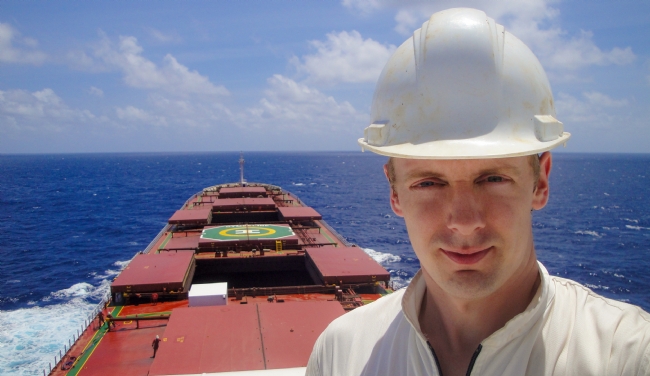Changing Course
Share this blog
Latest Maritime Vacancies
Client Executive
Technical Superintendent (Dry) – Europe
Tanker Technical Superintendent – Europe
HSSEQ Superintendent – Europe
Fleet Manager (Dry) – Europe
Seafaring – a love for the sea

"Adventure, excitement and an opportunity to explore the world. These are often associated with a life at sea. But in the modern Merchant Navy are they still the things that attract young people to a seagoing career?
One of the major attractions to working at sea has always been the opportunity to see the world. For the modern merchant seafarer, I feel this is still valid, but far less so than it used to be. When my father was at sea in the 1960s, a vessel might be in port for days or weeks at a time. This gave the crew the opportunity to get ashore and see something of the local area. Add to this, the fact that foreign travel was reserved for a privileged few, getting paid to see the world from the deck of a ship seemed like an attractive proposition.
In modern times, most port calls are measured in hours. Commonly, commercial vessels will be in port for no more than 24 or 48 hours. This is largely due to the increased efficiency of loading and unloading mechanisms. However, for the seafarer, getting the chance to go ashore is no longer guaranteed. The combination of rapid turnaround times and reduced manning of modern cargo vessels means that very often you will be required to work all the time the vessel is in port. Whether that be working cargo or performing maintenance while the main engines are stopped.
However, it is still the case that most seafarers will get to go ashore, maybe only for a few hours, but any small break is welcome if you have been on a long passage. The caveat being that many modern ports or loading docks are built well outside of towns or cities. It may be that there is time to go ashore, but if there are no amenities near that port, there is little point in doing so.
The exception to this is the cruise ship sector. While time ashore is still not a guarantee, you can be sure that you will be visiting the most touristic spots of the world.
For the modern seafarer, as for all workers, there is a high value put on the work/life balance. It is only relatively recently that we have seen employers offering a one for one work to leave ratio for seafarers. This sounds like the best balance you could possibly get, but the time you spend at home must be weighed up against the fact that you will be away for defined periods. This means you may miss your best friend’s wedding, or you may not be there when a family member needs you. If you can deal with this, then the positive side of having long periods at home is very real.
Unlike shore based jobs, there is a very clear distinction between work and home life. It is not the type of job where you can bring your work home, even less the type where you might work from home. The length of each work period is also very defined. You know that when you join the ship, you will be there for a definite number of weeks. You will have to work every single day that you are on board, but there is always an end in sight. For me, this is certainly one of the attractions to working at sea.
Money is a basic driver in all our lives, and seagoing jobs have typically been somewhat higher paid than equivalent shoreside positions. This gap has decreased in recent times, driven down by the influx of lower paid seafarers from other economies, but seagoing wages are still desirable. This is multiplied by the fact that while on board, the seafarer has little or no living expenses to worry about. With careful budgeting the seafarer can save a significant portion of their wages while at sea.
A love of the sea has, and always will be, the number one reason for embarking on a seagoing career. There is something vital, elemental and above all exciting about standing on the deck of a ship as it moves through the water. With the rumble of the engines and the movement of the waves the vessel feels almost alive. I’m sure all seafarers get that same feeling, as the engines start up and the vessel pulls away from the berth to start another voyage. It’s difficult to define, being somewhere between excitement and anticipation, but if you have that love for the sea, you understand."
– Declan Fyans, 4th Engineer – guest blog exclusively for Spinnaker Global for Seafarers Awareness Week 2018.